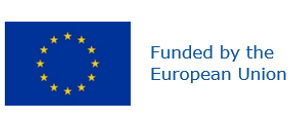Payments are a key part of the European Digital Identity Wallet (EDIW).
As eID (Electronic IDentification) systems like SPID are used significantly by the private (finance) and public sectors, through the Norwegian Council of Ministers-sponsored collaboration, the NOBID (NORDIC-BALTIC EID) consortium is proposing a pilot project focusing on payments, setting its sights on the next generation of eID, involving not only the consortium countries but also other European States.
Thanks to the solidarity support of the Member States and the active participation of leading banking institutions, service companies and technology providers, the solution will be developed and tested while also stimulating its deployment. Extensive testing of national and international use cases will be conducted, involving public and private sector experts with considerable experience in digital payments and electronic identification.
The NOBID project is financed with funds from the European Commission's DIGITAL EUROPE research and development programme, in which Poste Italiane participates together with 26 other partners from 6 European countries, including research institutions, industry and technology experts.
 The aim of the project is to test one of the main use cases defined by the European Commission in the area of payments, which concerns the authorisation of payments for products and services by the user/wallet owner.
The aim of the project is to test one of the main use cases defined by the European Commission in the area of payments, which concerns the authorisation of payments for products and services by the user/wallet owner.
More generally, it aspires to improve citizen access to a new generation of reliable and secure eID systems, as well as fiduciary services (electronic signatures and attribute attestations), expanding the possibilities of use for accessing public and private online services. It is also proposed to enhance citizens’ control over the secure viewing and sharing of their personal identity data, protecting their privacy.
As a partner in the project, Poste Italiane provides its technical and organisational expertise to facilitate citizens’ entry into the new system, ensuring a simple and secure onboarding process.

This project was funded by the Digital Europe programme under Grant Agreement 101102740. The views and opinions expressed are solely those of the writers and do not necessarily reflect those of the European Union or the European Commission. Neither the European Union nor the European Commission can be held responsible for them.
As eID (Electronic IDentification) systems like SPID are used significantly by the private (finance) and public sectors, through the Norwegian Council of Ministers-sponsored collaboration, the NOBID (NORDIC-BALTIC EID) consortium is proposing a pilot project focusing on payments, setting its sights on the next generation of eID, involving not only the consortium countries but also other European States.
Thanks to the solidarity support of the Member States and the active participation of leading banking institutions, service companies and technology providers, the solution will be developed and tested while also stimulating its deployment. Extensive testing of national and international use cases will be conducted, involving public and private sector experts with considerable experience in digital payments and electronic identification.
The NOBID project is financed with funds from the European Commission's DIGITAL EUROPE research and development programme, in which Poste Italiane participates together with 26 other partners from 6 European countries, including research institutions, industry and technology experts.
 The aim of the project is to test one of the main use cases defined by the European Commission in the area of payments, which concerns the authorisation of payments for products and services by the user/wallet owner.
The aim of the project is to test one of the main use cases defined by the European Commission in the area of payments, which concerns the authorisation of payments for products and services by the user/wallet owner.More generally, it aspires to improve citizen access to a new generation of reliable and secure eID systems, as well as fiduciary services (electronic signatures and attribute attestations), expanding the possibilities of use for accessing public and private online services. It is also proposed to enhance citizens’ control over the secure viewing and sharing of their personal identity data, protecting their privacy.
As a partner in the project, Poste Italiane provides its technical and organisational expertise to facilitate citizens’ entry into the new system, ensuring a simple and secure onboarding process.

This project was funded by the Digital Europe programme under Grant Agreement 101102740. The views and opinions expressed are solely those of the writers and do not necessarily reflect those of the European Union or the European Commission. Neither the European Union nor the European Commission can be held responsible for them.


